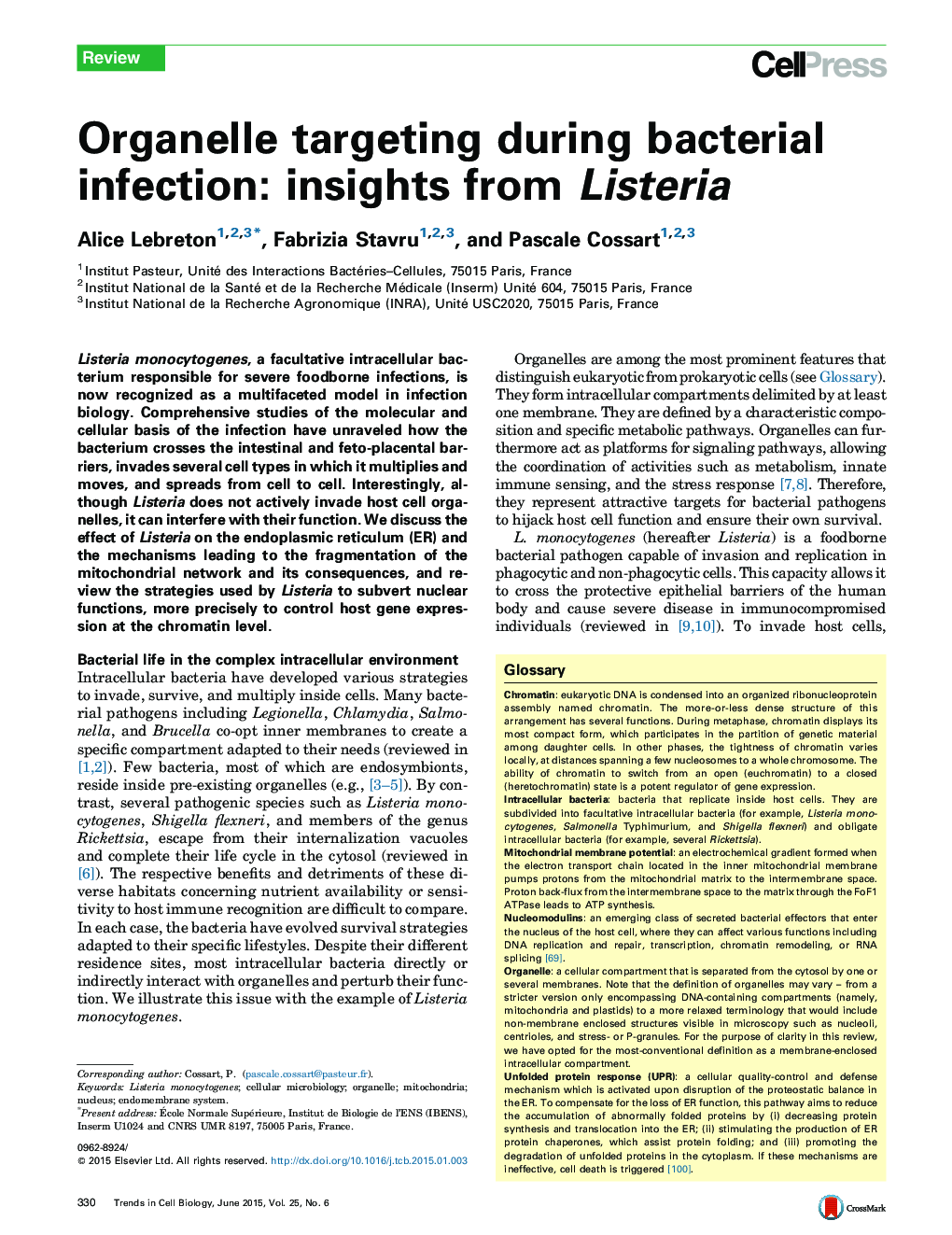| Article ID | Journal | Published Year | Pages | File Type |
|---|---|---|---|---|
| 2204371 | Trends in Cell Biology | 2015 | 9 Pages |
•Organelle manipulation by Listeria determines the outcome of infection.•Disruption of mitochondrial dynamics affects the efficiency of Listeria infection.•Bacteria secrete nucleomodulins to reprogram host cell transcription.•Listeria-induced perturbations in ion homeostasis impact on all organelles.
Listeria monocytogenes, a facultative intracellular bacterium responsible for severe foodborne infections, is now recognized as a multifaceted model in infection biology. Comprehensive studies of the molecular and cellular basis of the infection have unraveled how the bacterium crosses the intestinal and feto-placental barriers, invades several cell types in which it multiplies and moves, and spreads from cell to cell. Interestingly, although Listeria does not actively invade host cell organelles, it can interfere with their function. We discuss the effect of Listeria on the endoplasmic reticulum (ER) and the mechanisms leading to the fragmentation of the mitochondrial network and its consequences, and review the strategies used by Listeria to subvert nuclear functions, more precisely to control host gene expression at the chromatin level.
